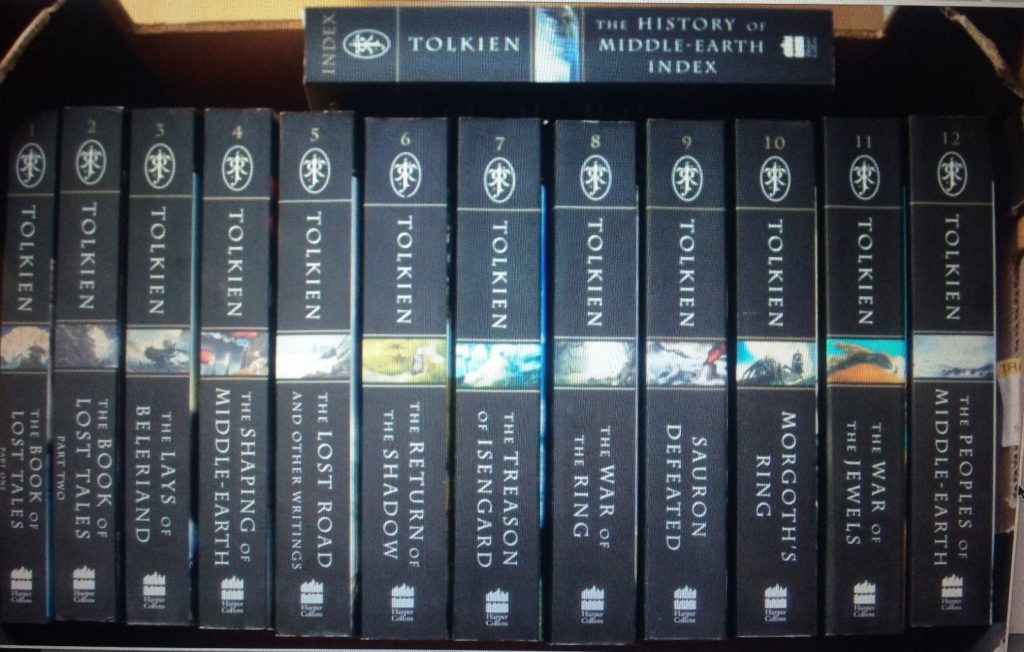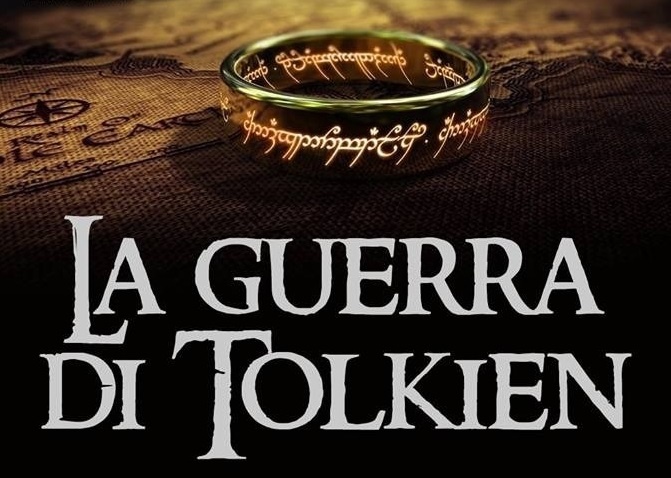The translation of History of Middle-earth
In 1996 the thirty-year copyright of the Italian translation of The Lord of the Rings expired. Even though it is unknown to Tolkien fans, this year is crucial for our fairy-story “The Princess and the Professor”4.
Since the copyright had expired, Dr Roberto Conforti wrote to princess Alliata on behalf of publisher Rusconi in order to renew her contract for another 20 years. She answered that renewing the contract and reprinting the book was not enough: she asked him to ‘add an introductory translator’s note to justify some translation choices.’ One of these was the word ‘Orchetti’: the Italian word ‘orco’ is equivalent to the English word ‘ogre’, and there is no exact translation into Italian for ‘orc’. When she realized the nature of these characters―‘mediocre, mean, but little’, ‘those parts of us we can defeat’, not external foes, but the evil inside men, she gave Tolkien two alternatives: “Orchetti”5 e “Orcagni”. He chosed Orchetti and Orchetti was used. Alliata faced the same dilemma with ‘Elves’. She knew Shakespeare’s elves (Tolkien did not like them, and even despised them), but she noticed that these elves were not ‘tiny and troublemakers, hiding in woods’, and they did not ‘play tricks’. Therefore she suggested ‘Gnomi’, ‘gnome’ being a Greek word meaning wisdom, and Tolkien’s Elves are in fact ‘beings of wisdom’. She marks an interesting fact – Tolkien himself thought about that in the first drafts of his mythology and he called the Noldor ‘Gnomes’, recalling ancient Greek: however, Alliata wasn’t absolutely aware of his choice at the time.
These translator’s notes, as well as Alliata’s request to make a philological revision of her own text, were refused by Conforti, much to her dismaye. A few months later, Dr R. Conforti received an e-mail from Harper Collins (the official publisher of the Tolkien Estate: Tolkien’s heirs) regarding his request to publish a one-volume anthology with texts from volumes 3 to 7 of The History of Middle-Earth. Christopher Tolkien’s answer was reported in this email: “he violently, categorically and definitively opposes the proposal…. remembering the unhappy experience of your translation of The Lays of Beleriand”.

All in all, Christopher had had enough of it: “this negative answer reflects the fact that we are dealing with an author who is not prepared to accept any degree of compromise in the shades of meaning often inevitable in the translation of a work in a foreign language, which is especially hard for Tolkien’s works”, Alliata told us at the Senate, quoting another passage of this letter. The History of Middle-earth would have been translated only if she herself were in charge of the translation.
Unfortunately she had to refuse because of a battle against organized crime that was occupying and devastating her Villa Valguarnera in Sicily. Ever since then the remaining volumes of The History of Middle-Earth have not been published in Italian: this is certainly proof that Bompiani has no relationship with the Tolkien Estate and that the Tolkiens do not want to hear a thing about updates and modernisations, that are on the contrary considered essential by Wu Ming 46 and Bompiani. The publisher made this position evident when directly answering princess Alliata from the pages of Il Giornale of the 16 January 2019, and Wu Ming 4 also wrote about it on the official AIST website in his review of Oronzo Cilli’s Tolkien e l’Italia, where he declared we should ‘pick the matter up again from the beginning, with a different approach, high professionalism, a better knowledge of the text and of Tolkien’s poetic’. This opinion is shared by O. Fatica, who defines Alliata’s work as “an improvised adventure” (O . Fatica’s interview is dated 29th April 2018, and Wu Ming 4’s review is dated 30th December 2016; both are published on the AIST website). According to Vittoria Alliata di Villafranca her actual translation needs philological and lexical revision with the addition of explanatory notes and the correction of the typos left there by Quirino Principe since 1970, in spite of a new revision made in 2003 by Società Tolkieniana Italiana under the responsibility of Quirino Principe. Principe edited the current edition of The Lord of the Rings translated by Vittoria Alliata di Villafranca: as explained in this article, the edition edited by Q. Principe was published at first by Rusconi, and then by Bompiani.
In the end, in relation to the publisher, another fact must not be forgotten: rights renewed by Rusconi in 1996 and later by Bompiani have expired again in 2016. What Bompiani has done since then is a misappropriation of the translation of Vittoria Alliata di Villafranca, as they continued to print The Lord of the Rings without any new contract with her, and, in the meantime, they were already in touch with the new translator Ottavio Fatica. This is stated in Wu Ming 4’s article on the official website of the Wu Ming organisation titled ‘Tolkien in Italia: la strada prosegue ancora’ (Tolkien in Italy, the road goes ever on) and it actually proves that the agreement between the publisher Bompiani and the new translator O. Fatica was signed in June 2017.
4 What follows are information reported out loud by Vittoria Alliata di Villafranca on the 17th January in Rome. Documents cannot be published now because of the complaint underway with O. Fatica.
5 In Italian “Orchetti” literally means “Little orc”, it is a diminutive, while “Orcagni” does not exist, but the ending “-agni” is a pejorative.
6 Wu Ming 4 is the pseudonym of Federico Guglielmi, a writer and one of the founders of the Wu Ming Foundation. In their website they describe this project as follows: ‘– is a grassroots federation of collectives, inquiry groups and laboratories, as well as artistic, cultural and political projects which were all born on or around this blog. Very often, they developed from discussions on our books.’
The pen name Wu Ming comes from Chinese and it means ‘no name’. They are a left-wing movement mixing culture and politics. Mr Guglielmi/Wu Ming 4 has written some essays on J.R.R. Tolkien and he is a founder member of AIST.


